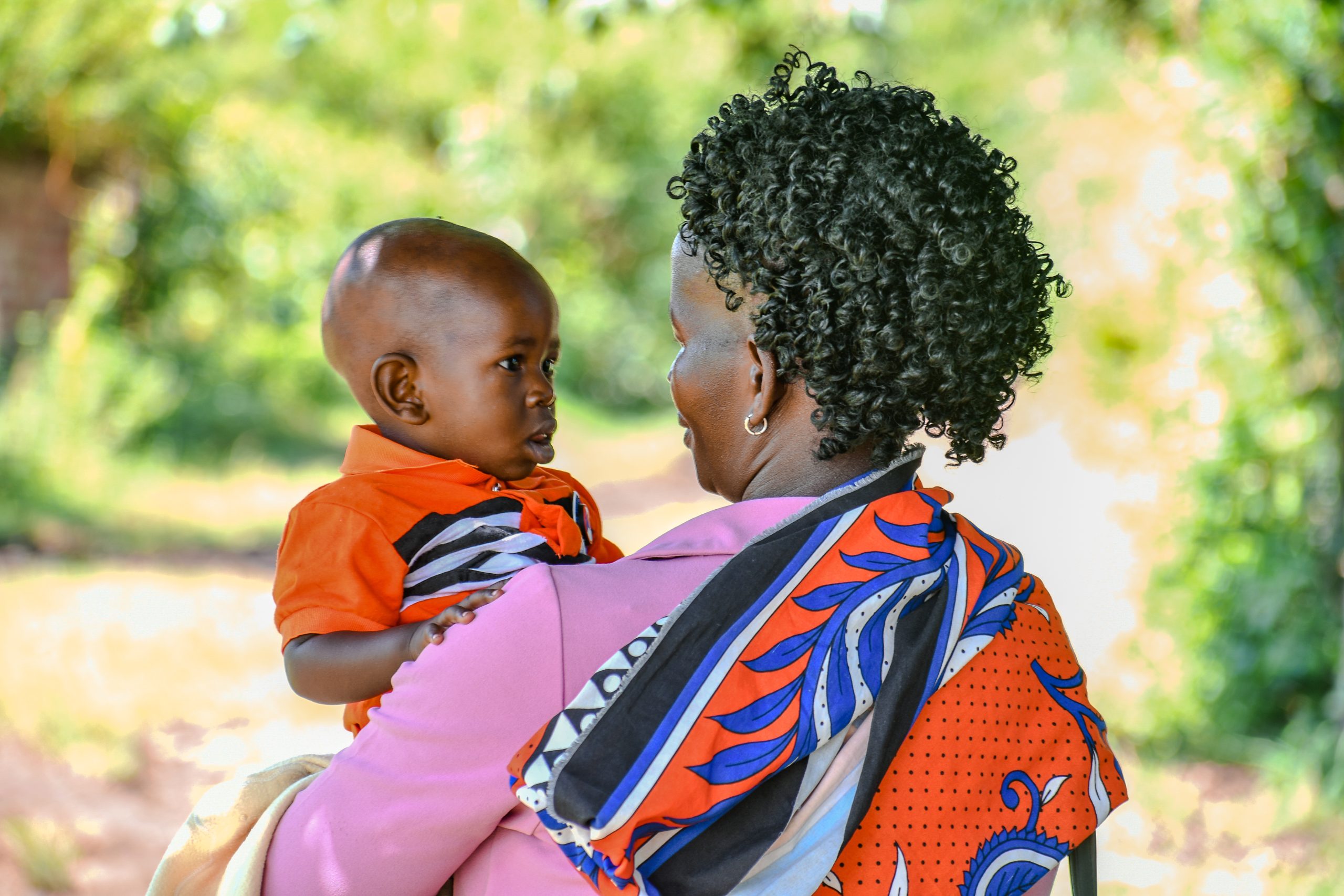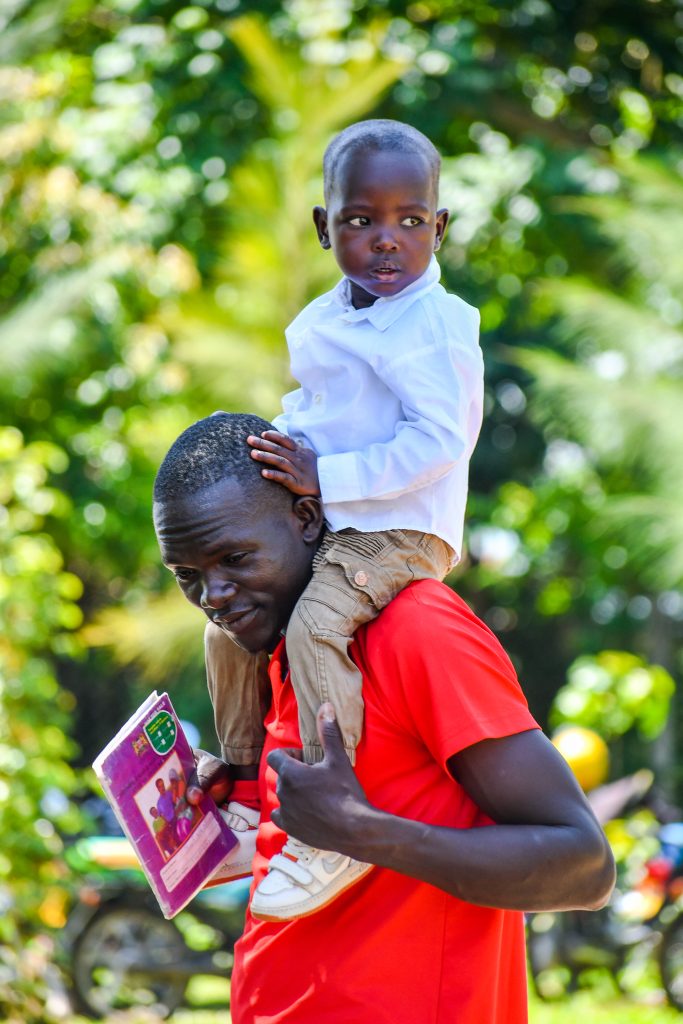Malaria Vaccine Helps Under-fives Thrive
Published on April 17, 2024
By Ruth Wanjala, Senior Communications Officer, MOMENTUM Routine Immunization Transformation and Equity project, PATH
Do you know the deadliest animal in Africa? It may come as a surprise to you that it’s the tiny flying mosquito. Mosquitos are minuscule compared to other deadly animals you may think of, but they carry deadly diseases like malaria, dengue fever, and Zika virus. What makes them extra dangerous is there are about 110 trillion mosquitoes in the world. That’s roughly 16,000 mosquitos per human!
In 2022, there were 233 million cases of malaria in Africa. Of these, 580,000 resulted in deaths. Of these deaths, 80 percent, about 464,000, were among children under five years of age.
In Kenya, about 75 percent of the population is at risk for malaria. For people living in Ndhiwa, a sub-county of Homa Bay in the western region of Kenya, these are more than just statistics. Ndhiwa has one of the highest malaria rates in the country, where almost 60 percent of children under five get infected. Caregivers and health workers routinely see children who have malaria, with cases ranging from mild to severe, which at times end in death.
In September 2019, a new tool to combat malaria arrived. Kenya’s National Vaccines and Immunization Program (NVIP), in collaboration with the Division of National Malaria Program, began providing the WHO-recommended four-dose malaria vaccine as part of routine immunization in 26 high malaria burden sub-counties in Western Kenya. In March 2023, MOMENTUM Routine Immunization Transformation and Equity worked closely with the NVIP, WHO, and PATH to distribute the vaccine to an additional 25 sub-counties. In particular, MOMENTUM focused on supporting expansion in Homa Bay and Vihiga counties.
In Ndhiwa, health workers like Judith Odero have seen the effects of these efforts. “In previous years, we used to admit approximately 15 children per month with severe malaria and treat many more with non-severe malaria,” she says. “With the vaccine we have seen reduced malaria admissions as well as less malaria-related anemia and deaths in our hospital. Our under-fives are thriving.”
These observations are consistent with findings from the malaria vaccine pilot evaluations which saw a reduction in severe malaria cases and a decline in all-cause mortality among children in areas where the vaccine was administered.
Caregivers are also excited about the vaccine. Consolata, a mother of six, took her nine-month-old son, Samson, to the Ndhiwa Sub-County Hospital for his third dose. He is her second child to receive the malaria vaccine, and Consolata can attest to its benefits.
“My older daughter, Hellen, was one of the first children to receive the malaria vaccine when it was introduced in this country. She received all four doses of the malaria vaccine as well as all the other routine vaccinations. Despite a few mild cases of childhood illness, she has been in excellent health since then. This is why I decided that Samson will also get the malaria vaccine,” explains Consolata.

Judith loves this kind of feedback. At the health facility, she talks to clients about the importance of routine immunization, the need to complete all the vaccines in the schedule, and how to manage post-vaccination fevers. She also tells people to continue using all other recommended malaria interventions like getting insecticide-treated bed nets, seeking prompt fever testing, managing mosquito breeding grounds, and accepting indoor residual spraying when available.

Donatus, a young father, knows first-hand why this guidance must be followed. “I have had bad malaria, and I don’t want my children to get malaria so my wife and I agreed that our children will never miss vaccinations,” he says. His son, Lewis, “has received all four doses of the malaria vaccine, and we make sure he and his younger brother sleep under an insecticide treated net.”
An unexpected benefit of administering the malaria vaccine is that it has strengthened the uptake of other vaccines, such as the second dose of the measles-rubella vaccine and vitamin A supplementation.
“If we get a two-year-old child coming in for the fourth dose of the malaria vaccine, we check if the child has received the second dose of the measles-rubella vaccine. We also check to see if there are other vaccines that may have been missed.” Judith says.
At first, Judith said it was challenging to get caregivers to come for the fourth malaria dose because many think that children’s immunization schedule is complete when they are nine months old.
In response, MOMENTUM trained 525 community health promoters in Ndhiwa on different community engagement strategies to introduce the malaria vaccine and create awareness about the vaccine schedule so caregivers know to return for the fourth dose. MOMENTUM continues to support Vihiga and Homa Bay by strengthening lost-to-follow-up tracking, providing supportive supervision, monitoring adverse events, and strengthening data management for vaccine tracking. MOMENTUM is synthesizing lessons from the introduction experience, such as how the four-dose vaccine schedule has helped strengthen the uptake of other antigens including measles-rubella 1 and 2, and Vitamin A supplementation. Additionally, the vaccine introduction has revitalized thinking at the health system level on how to develop innovative strategies to track lost-to-follow-up clients and ensure children come back to facilities beyond the first year of life.
As countries introduce the malaria vaccine, learnings from Kenya will help them protect more children from malaria-related mortality and morbidity.

